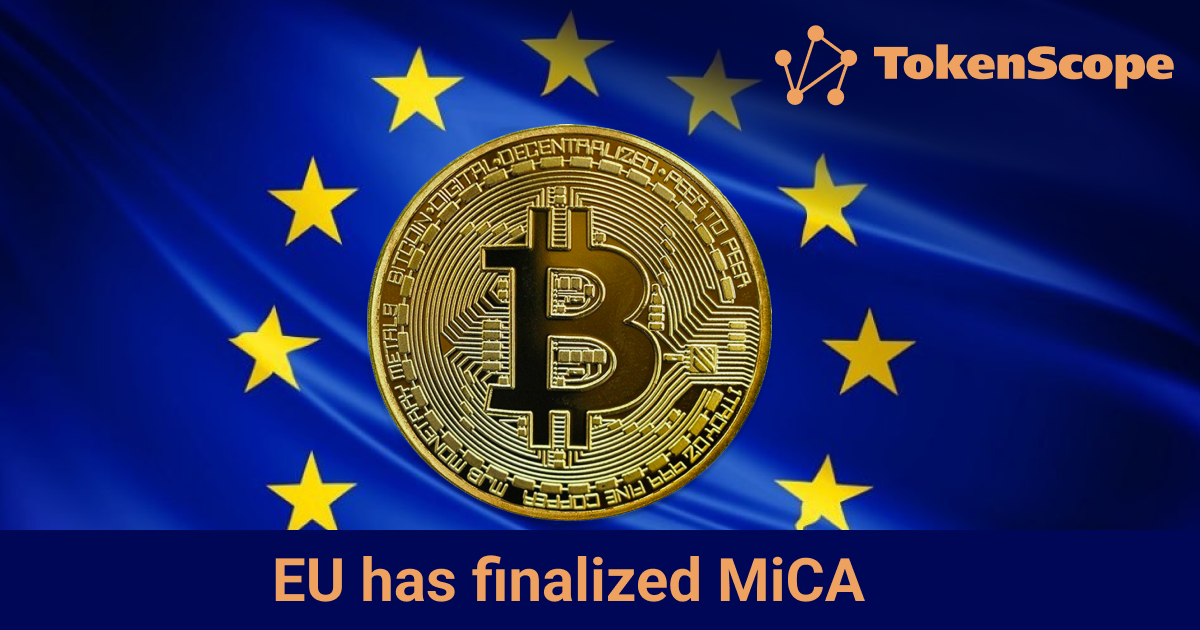Crypto regulation in the world: weekly digest #14

USA
We already wrote that in the USA was presented the new concept for supervision of the cryptocurrency industry. It is assumed that the are will be several watchdogs, firstly SEC (Securities and Exchange Commission) and CFTC (Commodity Futures Trading Commission). Both agencies are already actively involved in setting precedents for the regulation of both cryptocurrencies themselves and virtual assets service providers.
This week it became known that the CFTC has filed a lawsuit against Digitex platform, a DeFI project that allows trading futures contracts in the form of tokens backed with real assets through smart contracts. The CFTC believes that trading in such derivatives without registration in the United States violates the law.
It is likely that this lawsuit, if successful, can serve as further proof that many cryptocurrencies and tokens are commodities. This will allow the CFTC to compete with the SEC for the regulation of digital assets, and the new legislation will make it possible for the agency to start an attack on cryptocurrency exchanges where derivatives are traded.
At the same time, it became known that the SEC filed a lawsuit against the Bermuda-registered Arbitrate ltd. and Canadian Cryptobontix Inc. The SEC accuses companies of illegally issuing their own Dignity Token (DIG), which is pegged to real gold. The SEC believes that the Cryptobontix Inc. was specially registered in Canada by Arbitrate ltd. in order to offer US investors the opportunity to invest in gold through digital assets.
Moreover, the SEC believes that DIG is a pump & dump scheme and was in fact not backed by anything. The regulator found that part of the issued cryptocurrency was used to artificially appreciate its exchange rate.
It is notable that DIG itself is a derivative and this case should probably be in the purview of the CFTC, not the SEC. The continuing uncertainty in the regulation of digital assets and the misunderstanding of which agency is the main one in this matter is still one of the factors that prevents many global cryptocurrency platforms from providing services to US citizens.
EU
At the European Union has just been ended the debates on bill MiCA (The Proposal for a regulation on Markets in Crypto-assets). But it seems that lawmakers are back to supplement it with a daily limit on transactions with stablecoins, which are tied to fiat currencies other than Euro. Previously, such an initiative was rejected, as it could increase the complexity of overseeing the circulation of stablecoins.
Transactions in stablecoins, which are pegged to the US dollar and other currencies, are again planned to be capped at €200 million per day. The European Parliament's Committee on Economic and Monetary Affairs is going to vote on the bill at the end of this year.
CIS
The TokenScope Team continues to follow the development of the cryptocurrency industry and the regulation of virtual assets in the emerging markets. We have already written more than once about the approach to mining and VASP regulation in Uzbekistan, where mining can only be done using solar energy and is almost free of taxes.
Recently, the country also banned advertising of unregistered crypto exchanges and blocked access to their websites.
This week, further steps were taken to regulate the crypto industry and appeared a bill proposal to establish special taxation for industry’s participants. Taxes, apparently, will be paid by miners. According to the submitted bill, all companies licensed in the country that carry out operations with cryptocurrencies will pay monthly tax fees. Crypto exchanges will pay the most - about $11 000, and least of all, about $150, custodial services. It was also stated that 20% of the incomes received will be transferred to the local regulator of the industry, the National agency of perspective projects.
Kazakhstan has also come closer to create a comprehensive regulation of cryptocurrencies. In Astana International Financial Center (AIFC) has already registered several global cryptocurrency exchanges and is carried out a pilot project for their interaction with Kazakhstani banks. The goal of the project is to test the interaction between banks, cryptocurrency exchanges and their clients. At the same time, the cryptocurrencies themselves are still not a legal tender in the country.
This week, at the Digital Bridge – 2022 international Forum the President of the Republic of Kazakhstan announced that the country is ready to change national legislation and create a legal framework in the interests of the development of the crypto industry. The President noted that the country plans to become one of the world’s leaders in crypto industry and mining. The government of the country has already developed amendments to the legislation that will regulate the exchange of digital assets for fiat money and is designed to consolidate the success of the ongoing pilot project.
We continue to highlight the news of the world of crypto regulation worldwide. Please stay with us!




